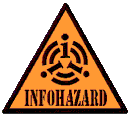| Big Champagne have just released "illegal" download figures for last week. They think the top track was downloaded more than 5 million times. That's 250 million a year, times the number of tracks and include direct copying and we're 3 or 4 orders of magnitude larger than iTunes if not more. The ease of ripping, the analog hole and the relatively small size (6Mb) mean that audio is essentially a free commodity. Digital distribution and especially P2P distribution just ain't going to go away. You can kick and scream all you want about freeloaders, parasites, the poor artist and so on. The industry can attempt to prosecute students and dead people but it won't change a thing. Deal with it. We've got a thread running on Ecademy, about alternate business models for the music industry. Here's my latest. How is there no distributor in an online model? The majors (with the possible exception of Sony) can't sell direct due to channel conflict. So there has to be a 3rd party (like Apple) in the chain. The big saving in the digital world is from all the manufacturing, shipping, distribution, warehousing and retailing costs. The actual cost of the CD is tiny these days, but the manufacturing setup is still fairly large and has to be spread across the production run. The equivalent costs online of all this are ripping the analog to digital which can be automated. And the cost of running the online site (bandwidth, servers, programming) which is spread across the entire catalogue. So the key to getting the online costs down looks like size of catalogue and volume. Even if we keep the current model of "selling" individual tracks or small groups of tracks (the album), there should be enough savings in the process to get the price 30% down from the CD equivalent and still pay the artists and record company the same gross. I think the next 30% comes from amortizing the original marketing, promotion and production costs. The vast majority of the catalogue is more than 1 year old and most of it is more than 5 years old. The production and marketing of that huge back catalogue of every bit of audio ever recorded has long since been paid for. So now we're left with a cut for the rights holder, the artist and the online site and that's it. It certainly looks to me as though those three could make just as much money per track at an online price of 20cents as they do on back catalogue CDs via HMV or Amazon at $9.99 per CD. And quite a bit more than they make from royalties on 3rd party "best of" CDs (all that crud in Woolworths!). But all this is still based on the trad model of "selling" individual "product". I think Napster will fail hopelessly. And not due to the model but to the execution. But at least they're exploring a new model where you rent the right to listen to an unlimited supply. The truly radical approach here is to treat mid-fi downloads (less than 128kb) as pure marketing, no different from radio play and then make the money from a premium product (DVDs) and live performance. At the moment, the industry demands that online sites that provide previews can't play more than 30 secs of lo-fi. Why not actually give away the full track but as 32k or 64k MP3s? Nasty, crackly AM radio level. Now we can start doing things like 50% filling of an iPod at point of sale. And so on. |
[ << Reason: Neal Stephenson’s Past, Present, and Future: The author of the widely praised Baroque Cycle on science, markets, and post-9/11 America ] [ Ecademy tags >> ]
[ 10-Feb-05 8:39am ] [ DRM




